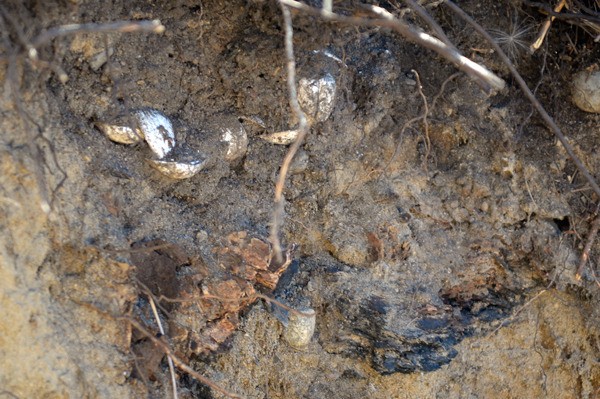A state expert has determined the human remains found at a Freeland job site in August are Native American.
Portions of a skull and the overall context in which they were found are the primary indicators for establishing ethnicity, according to Guy Tasa, the state physical anthropologist with the Department of Archaeology and Historic Preservation.
“It’s clearly a prehistoric shell midden site,” Tasa said.
Shell midden is domestic waste from meals and living, such as clam shells, animal or fish bones, charcoal, etc. Its presence was clear, said Tasa, and likely means this was a place that humans occupied.
Tasa said he believes the remains are that of a single person, an adult male. Just how old the remains are is unknown, however, and Tasa declined to speculate other than to say they predate European settlement. Due to tribal objections, it’s unlikely the bones themselves would be carbon dated but the shell midden might.
It’s suspected there may be more remains on the property and an archeologist will need to be present when digging resumes. The state will be assisting the landowner in the expense, Tasa said.
The bones were found Aug. 28 by South Whidbey-based Mason V Strevel Construction at a new home site near Robinson Beach in Mutiny Bay. Workers were digging the hole for the septic system when they noticed the bones.
Tasa said 10 tribes have been notified of the discovery, and the agency is awaiting feedback. One or more of the tribes will decide whether to reinter the remains onsite or move them to a new location.
Tasa said the landowner was willing to have them reburied on her property.



